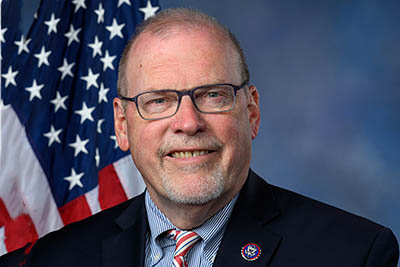Medicaid Expansion: Promises Made, Promises Not Kept

In multiple newsletters this year, I outlined important policies Republicans advanced in the reconciliation bill from this summer.
I also outlined inconsistencies with Democratic Party objections to the reconciliation bill.
Their talking points suggest the bill impacts the traditional Medicaid population, including pregnant women, seniors, children and individuals with disabilities. This is NOT true!
The reconciliation bill does make certain reforms to reimbursement to the States because of how Virginia and other States have handled Medicaid Expansion.
Medicaid Expansion was first created as a part of Obamacare.
The federal program incentivized States to adopt the expanded program.
If a State expanded Medicaid, the federal government committed to covering 90% of the costs associated with providing health care coverage to the Medicaid Expansion population.
The plan as written by the Obama Administration and passed by a Democratic-controlled Congress required Medicaid Expansion States to pay the remaining 10% of the costs.
Virginia chose to accept the terms of the Obama Medicaid Expansion in 2018.
When this happened, Virginia agreed to the 90-10 cost-sharing arrangement.
But Virginia found a clever loophole to avoid paying its full 10% share.
Virginia followed a circuitous process to avoid paying its 10%. It did so by putting a new tax on hospitals, called a provider tax.
This so-called provider, or “sick,” tax is then billed to the federal government as part of the hospital’s costs for health care.
When the federal government reimburses the state for federal health care programs, it includes reimbursements for the “sick” tax.
Virginia then uses this federal money to reimburse the hospitals with what is known as a state-directed payment. Virginia then counts the state-directed payment towards its 10% share.
Accordingly, Virginia is able to avoid using its own money and shirks its responsibility to fully pay its agreed upon 10% share of Medicaid Expansion.
Thus, as hospitals pay the state provider “sick” tax of up to 6%, the federal government sends Virginia a match based off the amount the State received from this tax.
This was not exactly the bargain agreed upon by Virginia with the federal government!
But Virginia is not alone in using this scheme to acquire more funds from the federal government through provider taxes.
California is also a State that uses the provider “sick” tax to get additional federal dollars.
Because of the state provider tax loophole, and a related loophole they have exploited called the “managed care organization” tax loophole, California gets additional Medicaid reimbursement from the federal government!
That then gives California the money to extend health care coverage in their State to illegal aliens.
Essentially, these loopholes have allowed most States to avoid their obligations, and in the case of California, subsidize health care for illegal aliens!
Many States neglect their responsibilities of paying their share in Medicaid Expansion’s 90-10 federal-state split.
Under the deal, States had to share the costs of the Medicaid Expansion program. This was to assure they would have skin in the game as an incentive to control spiraling costs.
But, with the provider “sick” tax circuitous scheme, they intentionally have little or no skin in the game.
Notwithstanding the talking points, what we did in our reconciliation bill on this was merely close a portion of this “sick” tax loophole to curb abuse by many States.
We began a gradual phasedown of the reimbursement on state provider “sick” tax rates that States can receive.
This phasedown drops the 6% reimbursement to States that tax hospitals to 3.5% over a five-year period, meaning by 0.5% each year so only a roughly 40% reduction of the reimbursement of the “sick” tax.
This way, we are requiring the States to live up to a portion of their 10% share of Medicaid Expansion costs.
The federal government continues to pay its 90% share. That was the deal. And the federal government will continue to reimburse roughly 60% of the provider “sick” tax scheme.
It is only fair for the States to begin moving towards meeting their 10% Medicaid Expansion cost commitment. This will give them skin in the game.
While paying the tab is never easy, the Medicaid Expansion States need to understand they made a deal. They need to keep the deal.
The Medicaid Expansion States that use the provider “sick” tax and state-directed payments need to stop blaming the federal government when the federal government is simply asking the States to keep part of their commitment to Medicaid Expansion.
If you have questions, concerns, or comments, feel free to contact my office. You can call my Abingdon office at 276-525-1405 or my Christiansburg office at 540-381-5671. To reach my office via email, please visit my website at https://morgangriffith.house.gov/.









